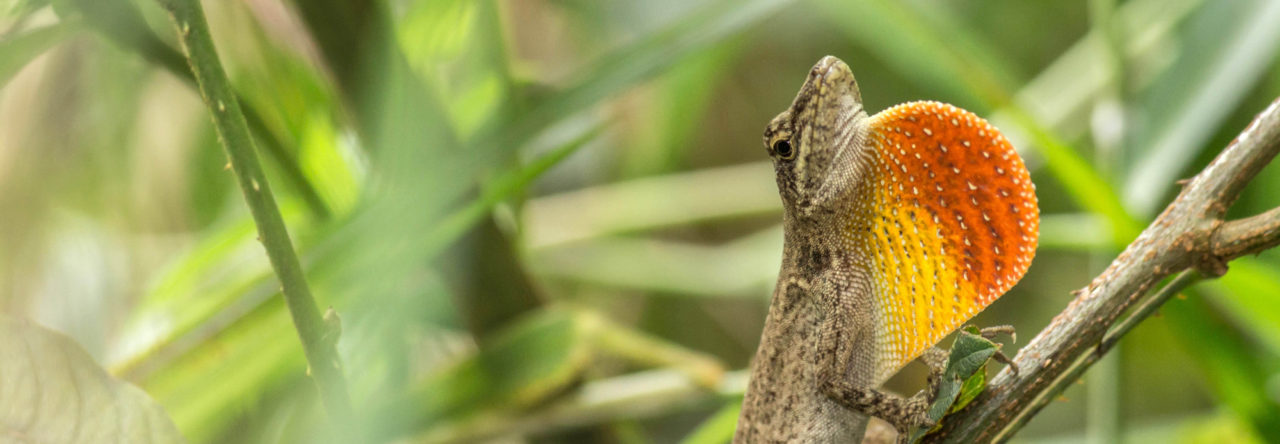For about a decade now, several researchers have used remarkably realistic looking robotic lizards to study lizard behavior. A pioneer in this approach—especially with regard to studying anoles—is Terry Ord, now at the University of New South Wales. You can see videos of his robotic lizards, as well as clips of a variety of anole species displaying, on the Terry Ord Channel on YouTube (or read about his most recent work here). As you’ll see, these robots are very realistic, both in terms of appearance and motion pattern—they bob, pushup, and extend their dewlap just like a real anole. In fact, even when the rubber body of the lizard hasn’t been attached, the underlying struts move in a clearly anole-like fashion. Bottom line, at a distance, I think most humans would be fooled by a displaying robo-anole. And lizards seem to be fooled, too, because they clearly respond by displaying and approaching the robot—check out the videos and/or Ord’s papers. Or read the recent paper by Partan et al., which demonstrates that A. sagrei responds more to a robot giving the typical signature display than to one presening a different display occasionally given by a lizard in the population.
Just like audio playbacks which revolutionized the study of bird vocal communication, robotic lizards provide the opportunity to rigorously examine lizard behavior in a controlled and replicated manner. Many different questions could be examined, but one of particular interest concerns how anoles distinguish conspecifics from heterospecifics. By altering the display pattern—the timing and amplitude of headbobs, pushups, and dewlap extensions—and by altering the color and pattern of the dewlap, researchers have the ability to understand species-recognition. In turn, such an understanding may provide critical insight into how new species arise, because speciation is the result of changes that lead individuals to no longer recognize each other as conspecifics.
- Evolution in Real Time on Lizard Island - March 23, 2025
- Spider Snags Adult Anolis osa - March 22, 2025
- An Homage to the Green Anoles of New Orleans - March 21, 2025



Leave a Reply